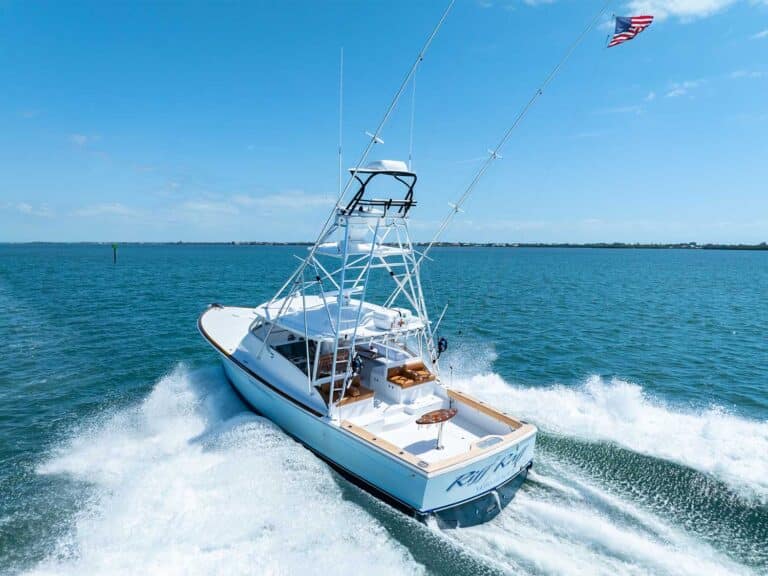
My dad went 17 years of owning his first sport-fisher without filing an insurance claim, but his luck changed on his next boat. Within the first four months, another vessel ran into his boat and soon after, a lightning strike ruined most of his electronics. He was fortunate to have solid insurance coverage.
It Can Happen Anytime
Buying a boat is an exciting process and insurance oftentimes isn’t at the top of a buyer’s list. Unfortunately, you never know when an incident causing damage or personal injury can occur on the water. It could be an hour after you close on a new boat, 20 years later or hopefully never. Insurance on a new boat should always be bound prior to closing so that coverage is effective when ownership — and also the risk of loss — is transferred to the buyer.
Insurance Binders
A binder is a short document showing an insurance company’s commitment to insure a new boat. Hence, it is a temporary issuance of proof of insurance that binds coverage until the policy is issued. A lender typically requires evidence of insurance coverage as a condition to closing on a loan, but whether a bank is involved or not, a good maritime attorney or broker will require a copy of a buyer’s insurance binder prior to closing to ensure coverage is in place when the ownership transfers.
Read Next: Ten Tips for Procuring Boat Insurance
Insurance Moratorium
Perhaps an example related to hurricanes will illustrate the importance of being proactive with your insurance coverage. Every insurance company has specific underwriting guidelines relating to imminent hurricanes or tropical storms, and each has authority to issue a moratorium, described as a temporary prohibition of binding. What if you are supposed to close on a new boat in Florida in two days, but a hurricane is rapidly approaching and you failed to bind insurance before a moratorium was enacted by the insurance companies? Depending on the language in your contract, you might have to change the terms of your closing or even be forced to close the deal and ride out a hurricane on your new boat without effective coverage. This might seem like an extreme example, but similar situations happen every year.
Boat insurance is not required in most states, if any, but it is certainly wise to have some form of coverage. Good insurance agents, yacht brokers and maritime attorneys will make sure you are properly covered from the moment you own the boat until the day you sell it.
Raleigh P. Watson is a contributing author, and a Partner at Miller Watson Maritime Attorneys.







